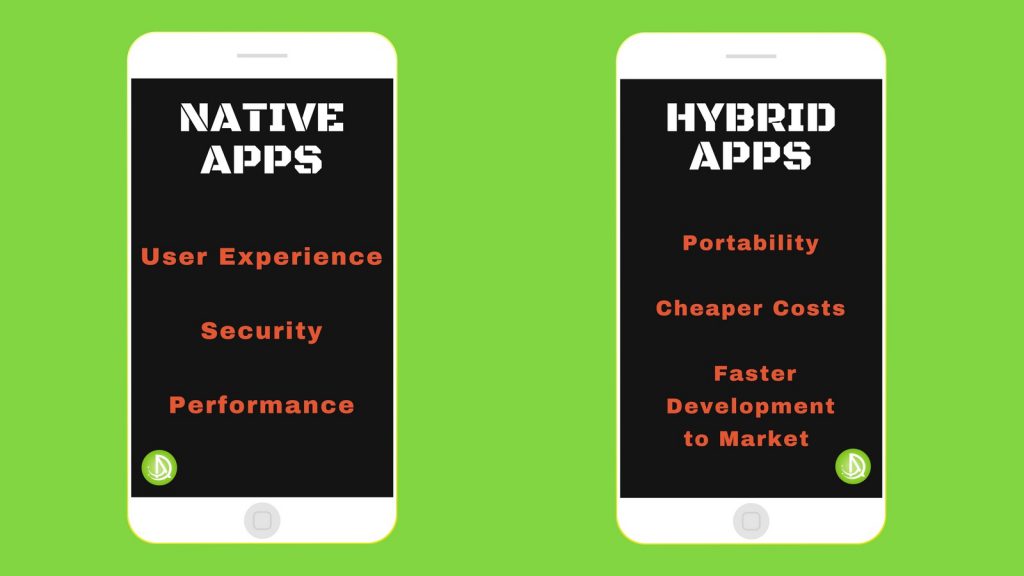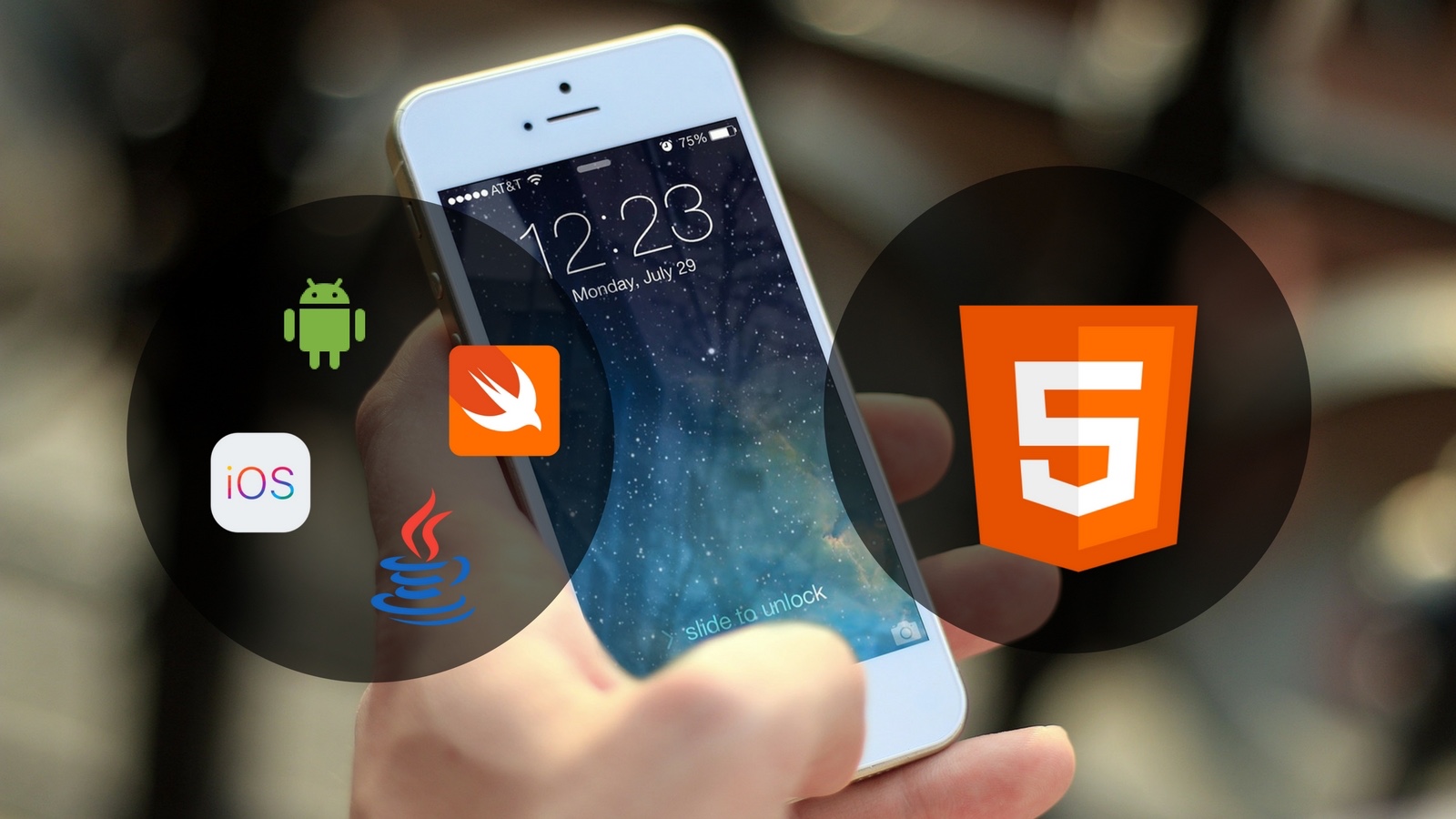So, you’re thinking about having an app developed. You may have also heard the terms “native” or “hybrid” app being thrown around as well and may not be sure of exactly what either of those terms mean.
If you’ve found yourself asking, ‘which is best for me and or my company?’ you’re in the right place.
The answer to the native/hybrid question depends on your priorities, and you should factor in some of these questions:
- How fast do you need the app developed?
- What goal are you trying to achieve?
- What is your budget for app development?
- What features do you need?
- How important is user experience?
What is a native app?
One of the first things that differentiate native apps from hybrid apps is that they are designed and developed for specific devices and operating systems. Because the app is developed for a specific operating system, it could only be accessed only from that dedicated app store. Android apps are written in Java and/or Kotlin, and iPhone apps are written in Objective-C and/or Swift. Native apps (i.e., apps that are designed for a specific operating system) are traditionally faster and more reliable when it comes to user experience. Another great advantage of native apps is that the app integrates beautifully with the devices operating system features such as the camera, microphone, contact list, GPS, etc. When an app is developed in its native environment, not only does it run faster but the user interaction is seamless. The user is able to learn and navigate through the app much more fluidly with a native base.
What is a hybrid app?
Hybrid apps at their core are websites packaged into native app wrappers. In other words, a hybrid app is a web app built using HTML5, JavaScript or some other web technology. Hybrid apps load information on the page as the user navigate through the app similarly to how the user would experience a website. While native apps usually download their content when the user first installs the app, a hybrid app loads most of the information as the user navigates through the app. If done well, a hybrid app will have the look and feel of a native app.
Hybrid apps are usually easier and faster to develop than native apps. They also require less maintenance and so may be more cost-effective to produce. The hybrid app speed usually depends on the user’s browser since it uses many of the web features. For this reason, hybrid apps typically will be slower than native apps. Because the hybrid app is web-based, you can build them on a single code base which allows you to add new functionality to multiple platforms.
Which one is best for me?
We would typically recommend building a native app on the iOS platform first and then transitioning to building an Android version. Of course, a bigger budget is required if you want to build an app on multiple platforms while keeping the native apps code bases updated.
In fewer words, the advantages that native applications have the best performance, higher security, and better overall user experience. They, of course, have the added advantages of being able to easily access the users’ device capabilities. Hybrid apps are made from a single codebase, unlike native apps where you’ll have to maintain two or more code bases. This brings down the maintenance necessary for the hybrid app compared to a native app. Ultimately, before deciding, you’ll have to ask yourself, “what’s more important to me?”

After reviewing your options, it’s important to discuss them with your app development firm to decide what is best you, your business, and which is most cost-effective. Here at Dynamik Apps, we will help you choose the right platform for your app idea to make sure your project is successful.
Let’s make great things happen!
Handy


